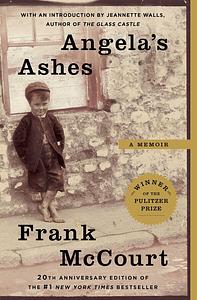You need to sign in or sign up before continuing.
Take a photo of a barcode or cover
dark
emotional
reflective
sad
medium-paced
Graphic: Alcoholism, Child death, Domestic abuse, Medical content, Grief, Alcohol
dark
emotional
funny
sad
medium-paced
Graphic: Addiction, Alcoholism, Child abuse, Child death
Moderate: Animal death, Sexual content
Minor: Bullying, Cursing, Fatphobia, Blood, Vomit, Pregnancy
emotional
inspiring
sad
dark
emotional
funny
reflective
sad
medium-paced
As I am of Irish dissent, this book resonated hard with me. Frances was a similar age to my grandmother who lived an hour (by modern-day car) north of Limerick in the same time period. After asking my grandmother's sister (who'd read the book) to give me a comparison of their living situation, She replied that this story was nothing compared to what they endured. It gave me a LOT of perspective and definitely sparked interest in learning about my ancestors and revisiting Ireland. The language reminded me of my Irish relatives in a slightly comical way?? Definitely giggled a few times while reading this one, but to be clear, this book is probably the most depressing book ever to be written.
If this weren't a true account, I would have been mad at the author for the exhausting hardship, after hardship that this family endures. Instead, I am so sympathetic as well as angry at the world that this story is in fact true. It shows you what poverty can really look like, and has definitely given me a new appreciation for the privilege of comfort. Overall, really interesting, well written book. I would especially recommend to someone with Irish ancestors.
If this weren't a true account, I would have been mad at the author for the exhausting hardship, after hardship that this family endures. Instead, I am so sympathetic as well as angry at the world that this story is in fact true. It shows you what poverty can really look like, and has definitely given me a new appreciation for the privilege of comfort. Overall, really interesting, well written book. I would especially recommend to someone with Irish ancestors.
I read this book to fulfil the goal read a book about suffering. it takes place during the potato famine in ireland. a suffering family in america migrate back to ireland during this time. it is very depressing. several children die. it also uses a lot of bad language. and has a lot of sexual themes. for tha reason i wasn't as impressed as i could be
If memoirs are your thing, this one is a must read. Frank grew up in abject poverty in Ireland. One parent from the north and one from the south. The depths of suffering of Frank, his siblings and especially his mother are immeasurable. This is the best of the 3 books in his life series, but the others are worth a read if you want to see how his life pans out. This is a man I wish I could have met.
I read this book many years ago and it is still a fantastic read today!
First, I want to note that I did appreciate the book. It provided a glimpse into the life of the lowest classes during the slow years following the creation of the Irish Free State. While I'm sure certain things have been embellished to improve the story (I doubt anyone has the kind of recall of their childhood necessary to accurately present the incidents that occurred), I believe that it was mostly truthful. It also makes clear the hypocrisy that existed in the elite circles of Ireland after independence. Seeing the love for English goods (and a desire to go to England) from people that routinely curse the English for their occupation of Ireland makes a clear point that personal comfort/survival are more important than principles for most people. The hypocrisy of the church was very clear when Frank's mother asked "How many times has the church slammed a door in your face?" From the wealthy, to the civil servants, to Frank's own family, it was difficult to find a single person that lived up to the purported values of the Catholic church, though clearly everyone felt comfortable judging their neighbors. The picture this book paints of Ireland is neither flattering nor grand, giving it a sense of reality that is sometimes missing from books about the Emerald Isle.
Unfortunately this book was significantly over-hyped in my view. While the story was interesting, I see nothing of the "lyrical" style that is lauded in reviews. The book more closely resembles a forced autobiography. It reads like a list of events written by a detached and largely emotionless author. Even the emotional moments are written as if nothing of real import happened. While it's likely that McCourt would not remember his real emotional state at the age of 4 or 5, he could have made a bit more of an effort to bring his readers into his world. Instead he paints a picture of depression era Ireland, but one that the reader never forgets is merely a picture.
Unfortunately this book was significantly over-hyped in my view. While the story was interesting, I see nothing of the "lyrical" style that is lauded in reviews. The book more closely resembles a forced autobiography. It reads like a list of events written by a detached and largely emotionless author. Even the emotional moments are written as if nothing of real import happened. While it's likely that McCourt would not remember his real emotional state at the age of 4 or 5, he could have made a bit more of an effort to bring his readers into his world. Instead he paints a picture of depression era Ireland, but one that the reader never forgets is merely a picture.


